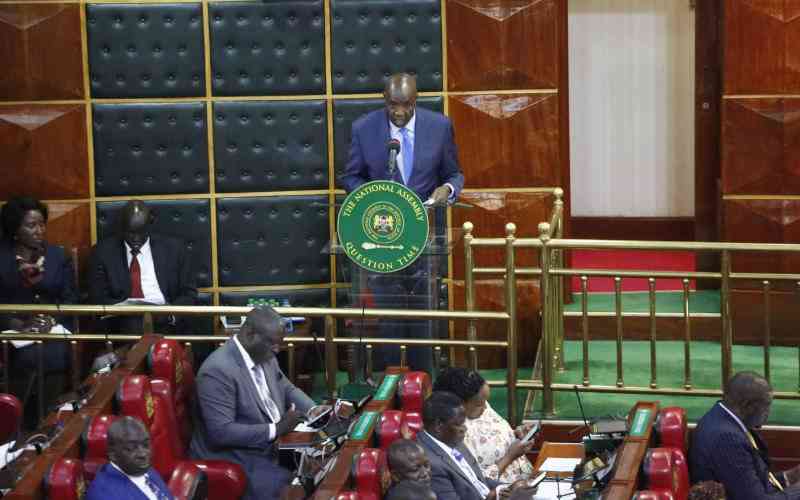×
The Standard e-Paper
Stay Informed, Even Offline

Education CS Ezekiel Machogu when he appeared before the National Assembly plenary in Nairobi. [Elvis Ogina, Standard]
Some Sh24 billion have been released to all public schools, ending the long wait that led to a financial crisis in the institutions.